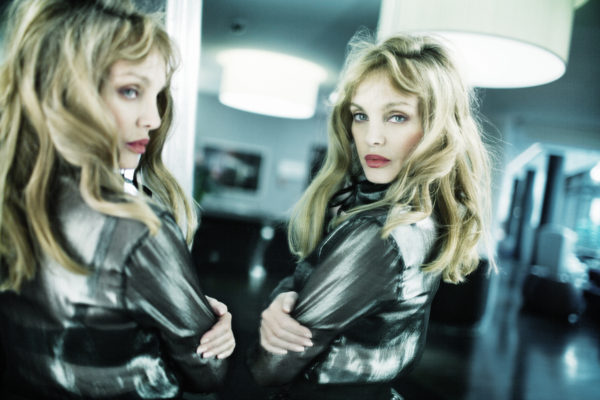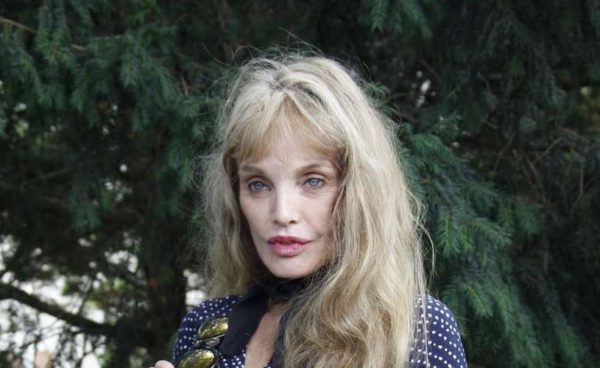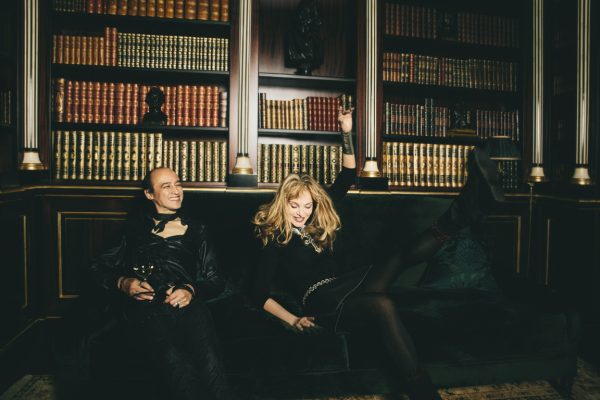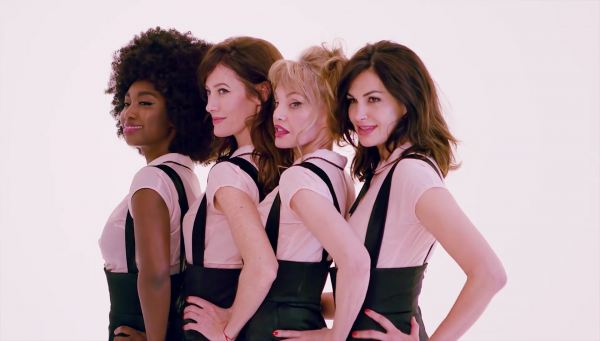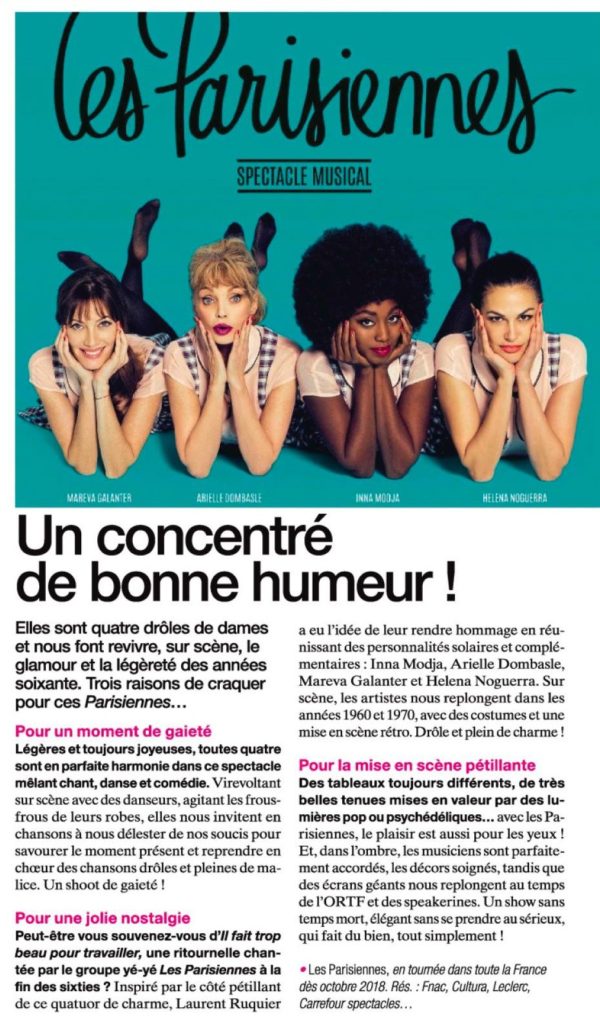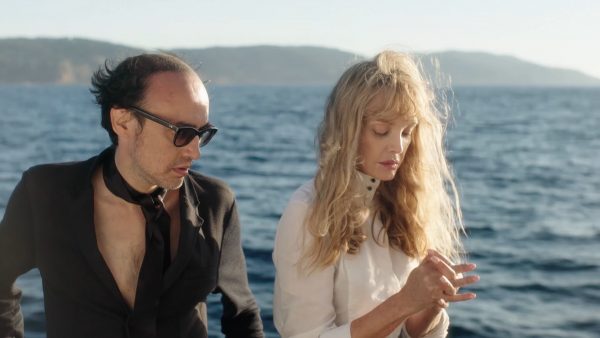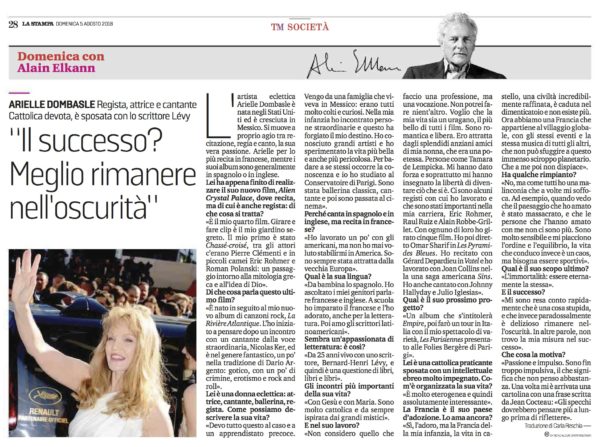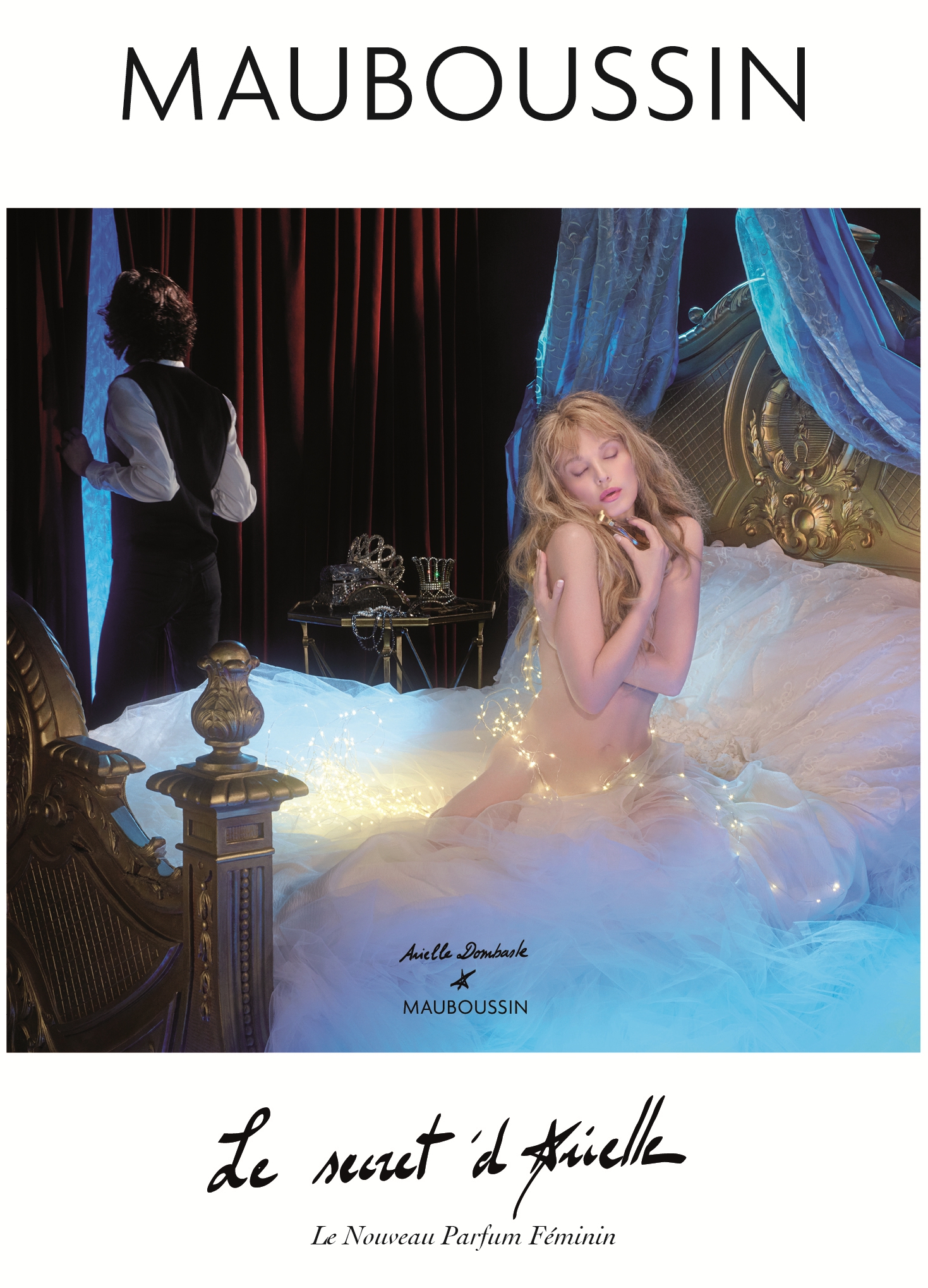THE VERTIGO OF FREEDOM. The multi-cultural artist Arielle Dombasle was born in America and raised in Mexico. Arielle moves easily between comedy, directing, acting and singing, her true passion. Most of her acting work has been in French, while her albums are mostly in Spanish or English.
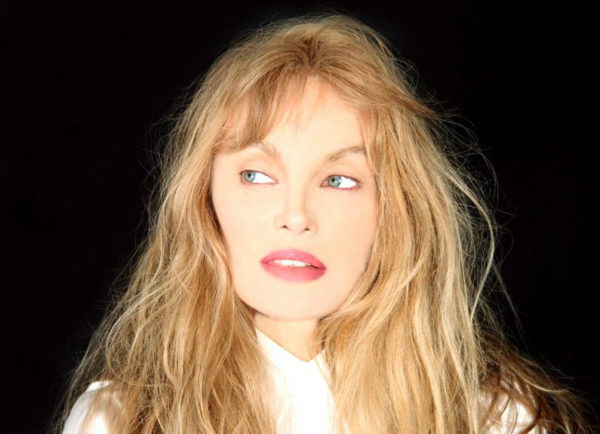
You just finished making your film Alien Crystal Palace. You acted in the film but are you also the director?
Yes, it is my fourth film as a director. It’s a little secret, because I am a multi-faceted character. To shoot movies and do clips is my secret garden. My first movie was Chassé-croisé in which I had Pierre Clémenti among the actors, with small cameos from Éric Rohmer and Roman Polanski. It is a little passage around Greek mythology and the idea of God.
What is this latest film about?
It is a fantastic film, a little bit in the tradition of Dario Argento; a Gothic movie with crime, eroticism and rock and roll. The film came about after my last album of rock songs, which has the title of La Rivière Atlantique. I made it after an encounter with a rock singer with an extraordinary voice, Nicolas Ker.
“I want my life to be a hurricane, the most beautiful of all films.”
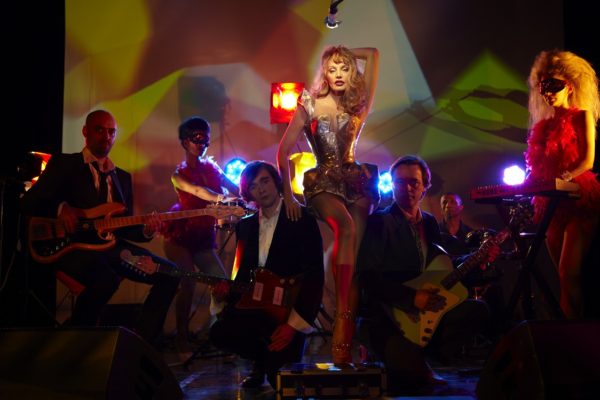
You are eclectic; an actress, a singer, a dancer, a director. How can we describe your life?
I owe all this to chance and a very precocious apprenticeship. I come from a family which lived in Mexico and they were all quite extraordinary; very erudite and curious. In my childhood I encountered extraordinary people and this has forged my destiny. I encountered great artists and I saw what was the most beautiful and hospitable life, and also the most dangerous and the most extraordinary. In order to protect oneself one needs knowledge, and I studied at the Conservatoire de Paris. I was a classical dancer, I was at first a singer, and then I moved to the cinema.
You have studied quite a lot?
Yes, I really learned the bel canto tradition, including music and singing.
Why do you sing in Spanish and English, and act in French?
I worked for a little bit with the Americans, but I never wanted to establish myself in America. I was attracted by Old Europe.
Which is your language?
As a child my first language was Spanish. I listened to my parents speaking French and English. At school I learned French, and I adored French and French literature. I was also reading Spanish writers, especially the Latin Americans.
You seem to love literature very much?
I have lived with a writer for 25 years and therefore it is a question of books, books, books! Today I like to be on stage, to sing, and also to make movies.
“In order to protect oneself one needs knowledge.”
With whom were the most important encounters in your life?
With the Christ and the Virgin Mary. I am very Catholic and religious, and I have always been much inspired by the great mystics.
With whom have been the most important encounters in your work?
I don’t know. I don’t consider what I do a profession but a vocation. I couldn’t do anything else. I want my life to be a hurricane, the most beautiful of all films. To me this means a melodramatic film and an idealistic film. I am romantic and free. I was attracted by splendid old people who were friends of my grandmother, who was a poet. People like Tamara di Lempicka and others. They gave me a lot of strength, and especially they taught me the freedom to become what one is. There are some movie directors whom I worked for who were extremely important in my career, Éric Rohmer, Raoul Ruiz, and Alain Robbe-Grillet. With each one of them I shot five films. I directed Omar Sharif in one of the films that I directed, the title of the film was Les Pyramides Bleues. I acted with Gérard Depardieu in Vatel, and I also worked with Joan Collins in a kitsch American saga, the miniseries Sins; and I sang with Johnny Hallyday, Julio Iglesias and others.
What is your next project?
Another album whose title is Empire, and I will do a tour in Italy with my review, Les Parisiennes. We have done it already at the Folies Bergère in Paris, singing and dancing and so on with four other girls.
Have things changed a lot in your life?
No, things are eternally the same. One is choosing and one is chosen.
You are a strong Catholic and married to a Jewish intellectual (Bernard-Henri Lévy) and also very busy. How does your life work?
It is very heterogeneous and so completely interesting.
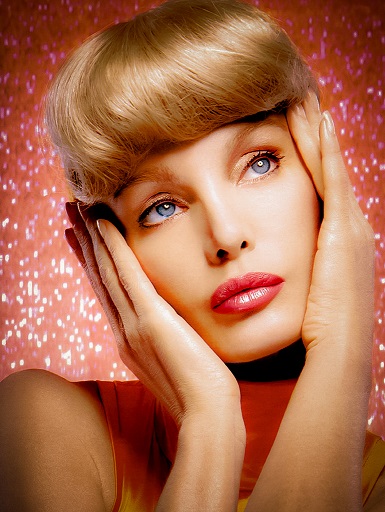
“One has to love, to be idealistic and to put love as the first thing in life.”
France is your adopted country. Do you still love it?
Yes, I adore it, but the France of my childhood, life in a chateau, a civilisation of incredible exquisite refinement, has fallen into oblivion in France and does not exist anymore. Now we have a France that belongs to the global village, a France that knows the same events and music as everyone else and cannot escape this immense planetary syrup. But I quite like the syrup.
When you think of yourself, who is Arielle?
I think of the vertigo of freedom, undiminished at every step by totalism and by making things easy.
Do you have some regrets?
No, but like everybody else I have a melancholia that sometimes suffocates me. For example, when I see that the landscape that I loved has been massacred, and the people who loved it with me are not here anymore. I am very sensitive, and I like order and equilibrium, measure, and the life that I lead happily is a chaos but one has to be very athletic. One has to love, to be idealistic and to put love as the first thing in life; and this is what I do.
What is your ultimate goal?
Immortality. To me it means to be eternally the same.
What about success?
I realised very quickly that to have great success was a stupid thing, and on the contrary the most secretive and delicious thing paradoxically remains in obscurity. In other words, success is not for me my measure.
What does drive you?
Passion and impulsion. But I am too impulsive. This means there is not enough thinking, and one day I was sent a postcard with a sentence written by Cocteau: “Mirrors should think longer before they reflect.”
